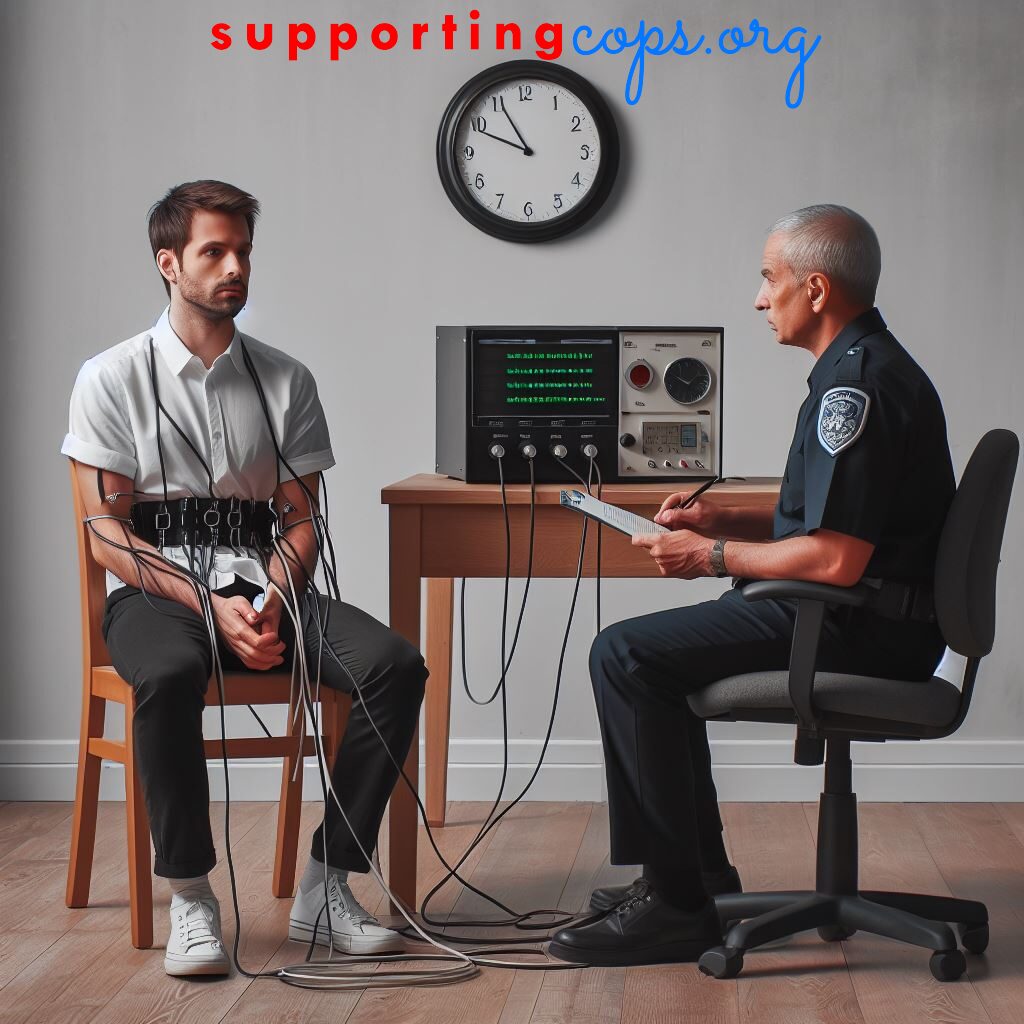How to Deal With a Police Polygraph Test
A polygraph test, commonly known as a “lie detector” test, is a crucial component of pre-employment screening for law enforcement careers. Understanding and effectively navigating this test is essential for aspiring police officers. Below is a comprehensive guide on how to deal with a police polygraph test:
Introduction
In the realm of law enforcement careers, passing a polygraph test is often a mandatory requirement. This test, utilizing specialized equipment, aims to measure physiological responses during questioning, ostensibly to detect deception.
Understanding the Test
Before delving into the test itself, it’s vital to grasp the components of the polygraph equipment. This includes the galvanometer, which measures perspiration levels, the blood pressure cuff monitoring heart rate, and the pneumograph, gauging breathing patterns. However, it’s crucial to recognize the limitations of these machines—they cannot definitively ascertain deception but rather detect physiological responses associated with stress.
Preparing for the Test
Preparing adequately for the polygraph test can significantly impact its outcome. Ensuring a good night’s sleep and maintaining regular eating habits can promote calmness and consistency during the exam. Importantly, avoiding medication, which can skew physiological readings, is advised. Moreover, treating the test with the same seriousness as a job interview, including appropriate attire and punctuality, is essential.
Taking the Test
During the pretest interview, honesty is paramount. Providing comprehensive background information minimizes the risk of suspicion. As the sensors are attached to your body, remaining calm is key. The actual test involves a series of control and substantive questions, with consistency in responses being critical. Following the exam, awaiting results is often accompanied by understanding that minor discrepancies may not be disqualifying.
Tips and Warnings
Understanding that minor infractions are generally forgivable and recognizing the inherent flaws in polygraph tests can alleviate unnecessary stress and anxiety associated with the process.
Conclusion
Navigating a police polygraph test requires a combination of preparation, honesty, and understanding. While the process may seem daunting, a clear understanding of its components and objectives can contribute to a successful outcome.
FAQs
Are polygraph tests always accurate?
No, polygraph tests have inherent limitations and are not foolproof indicators of deception.
Can I refuse to take a polygraph test?
In some cases, refusal may result in disqualification from certain job opportunities, particularly in law enforcement.
What happens if I fail a polygraph test?
Failing a polygraph test may lead to disqualification from the application process, but minor discrepancies are often considered.
Do nerves affect polygraph results?
Yes, physiological responses influenced by stress or anxiety can impact polygraph readings.
Are there alternative methods for assessing truthfulness?
While polygraph tests are commonly used, alternative methods such as behavioral analysis are also employed in some contexts.






